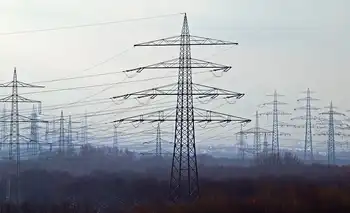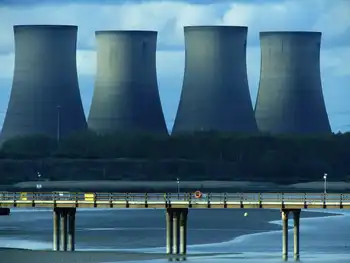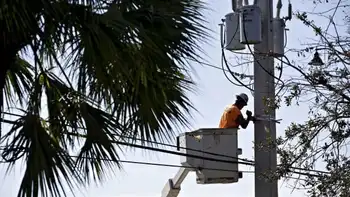High Goals for Reducing Emissions in New Jersey
Business leaders expressed concerns about the billÂ’s effect on energy costs and the stateÂ’s competitiveness, but environmental advocates hailed it as pathbreaking, and Gov. Jon S. Corzine said he was ready to sign it into law.
Under the new law, greenhouse gas emissions generated by every aspect of the stateÂ’s economy, not just electricity-generating stations, will have to drop about 13 percent, to 1990 levels, by 2020. The bill further requires that emissions be capped at 80 percent of 2006Â’s levels by 2050.
A few other states have set emissions reduction goals, but none go as far into the future as New JerseyÂ’s. California, which passed a similar law earlier this year that was widely considered the toughest in the country, extends only to 2020.
While the legislation sets reduction goals, it does not specify how they will be met. Instead, it instructs the Department of Environmental Protection to work with other state agencies, including the Board of Public Utilities and the Department of Transportation, over the next year to recommend ways of meeting the 2020 emission reduction targets.
The same agencies have until June 30, 2010, to develop recommendations for reaching the reduction goals for 2050.
“This is a vital step in protecting our state’s environmental resources and the health of New Jerseyans,” said Assemblyman John F. McKeon, an Essex County Democrat who was one of several sponsors of the bill. “New Jersey’s aggressive protection of its resources will help set a national tone.”
The bill also establishes a statewide greenhouse-gas monitoring program that will include pollution emitted by out-of-state power plants that export electricity to New Jersey. A plan to collect fees from every company that emits greenhouse gases — chiefly carbon dioxide — to support the monitoring program was dropped after industry opposed it.
The lack of specifics about how emissions would be cut has been a concern of New Jersey’s business leaders. “For a state trying to hold on to manufacturing and high-paying jobs, we’re worried about the effect those regulations would have on electricity rates and our competitiveness,” said Sara Bluhm, assistant vice president for energy affairs at the New Jersey Business and Industry Association.
In a letter to legislators, the association said the bill “drives up the cost of electricity, and does so with no global environmental benefit.” It also called the bill premature because other major initiatives have not been put into practice.
One of those programs is the Regional Greenhouse Gas Initiative, a pact among 10 Northeastern states, including New Jersey, to reduce emissions from power plants 10 percent by 2019. That agreement also establishes a “cap and trade” mechanism for buying and selling pollution allotments among the 10 states that is intended to soften the effect of the regulations on industry.
Jeffrey R. Holmstead, the former chief of air and climate change programs at the federal Environmental Protection Agency and now head of the environmental strategies group at Bracewell & Giuliani, said that without a cap and trade program or specific regulations for emissions reductions, New JerseyÂ’s efforts were unlikely to be successful.
“Having spent a lot of years working on these issues, I can see the political appeal of doing these things,” Mr. Holmstead said. “But to willy-nilly go out and set goals that can’t be met, and assign another group to figure out how to get there, doesn’t make any sense to me.”
Suzanne Leta Liou, global warming and clean energy advocate for Environment New Jersey, a lobbying group, said a cap and trade program was not necessary.
Ms. Leta Liou said conservation and alternative energy sources, like offshore wind turbines, could substantially reduce emissions and could, in the end, save consumers money. Some conservation measures could be directed at government and industry, and others could affect consumers, like requiring that low-resistance replacement tires be sold in the state.
Dale S. Bryk, a senior lawyer for the Natural Resources Defense Council, said actions like New JerseyÂ’s would increase the pressure for national standards.
Related News

Surging electricity demand is putting power systems under strain around the world
LONDON - Global electricity demand surged in 2021, creating strains in major markets, pushing prices to unprecedented levels and driving the power sector’s emissions to a record high. Electricity is central to modern life and clean electricity is pivotal to energy transitions, but in the absence of faster structural change in the sector, rising demand over the next three years could result in additional market volatility and continued high emissions, according an IEA report released today.
Driven by the rapid economic rebound, and more extreme weather conditions than in 2020, including a colder than average winter, last year’s 6% rise in…





